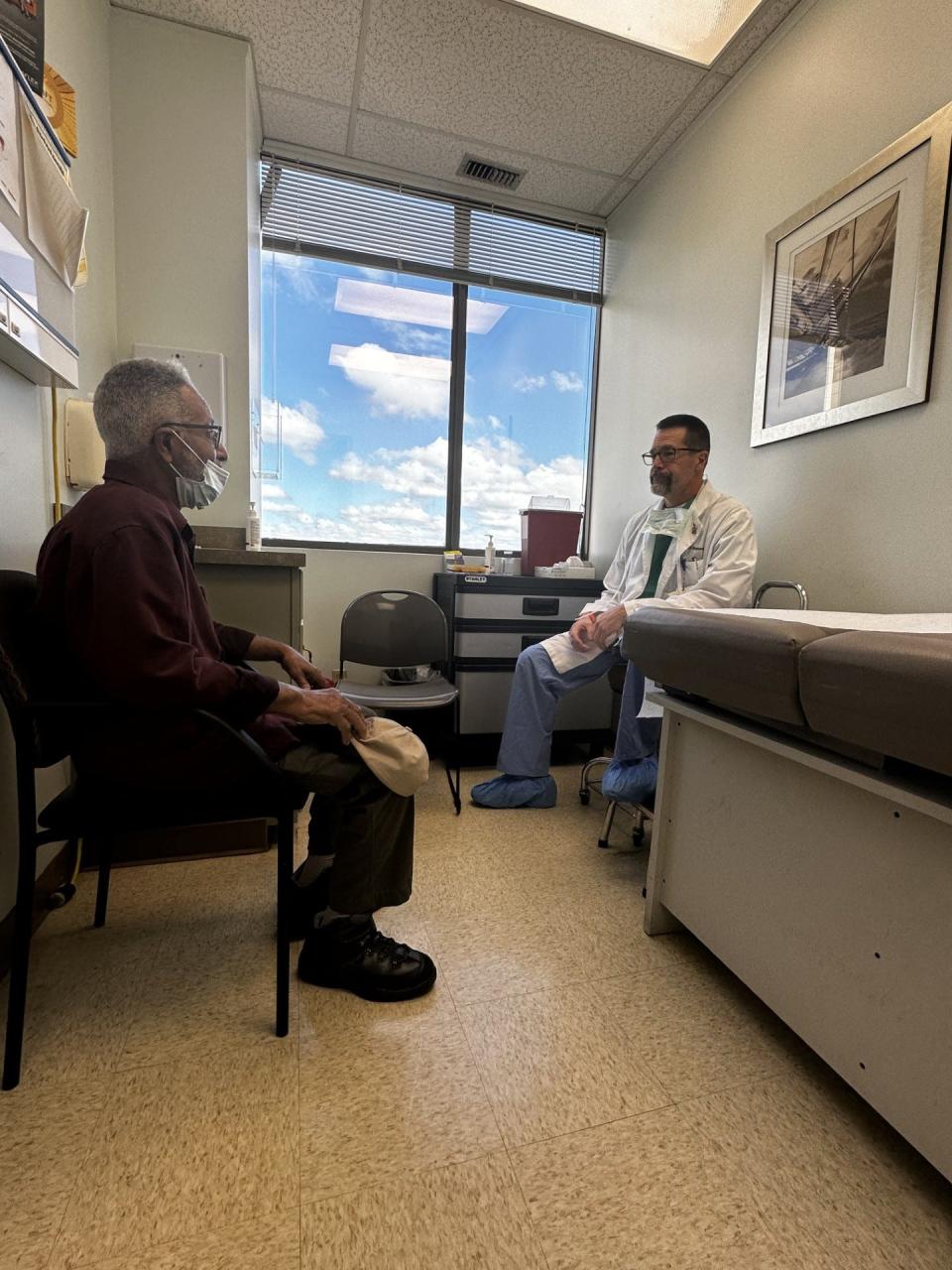Saint Francis Hospital-Memphis offers new procedure to improve prostate functioning
Frequent, inopportune urinating and erectile dysfunction are two symptoms common to older men all over the world, and Memphis is no exception.
But, for Memphis area men, there's a new option to alleviate these symptoms through a minimally invasive procedure that is touted as a safer option over traditional treatments.
Aquablation is a new-to-Memphis procedure that uses water to remove tissue in the prostate. After using imaging to map out a patient's prostate, robotic technology uses heat-free water to remove excessive prostate tissue that is at the source of symptoms like frequent urination and sexual dysfunction — two highly common issues men experience as they grow older due to the gradual enlarging of their prostates.
For now, the procedure is only performed locally at Saint Francis Hospital in East Memphis.
For John Parker, an active 86-year-old self-described "health nut", the procedure means, simply, less time going to the bathroom and more time reading, writing, exercising and doing things that keep him feeling younger than he is.

Parker underwent aquablation in mid-August. He started to notice a difference in how much he had to use the restroom less than a month after the procedure.
"It's been a relief," Parker said. "I don't have to go to the bathroom nearly as much. I don't have to stop what I'm doing all the time."
His wife Marilyn Parker, who was skeptical of the procedure at first, described her own indirect benefits of the procedure. For one, she's able to sleep more at night, as her husband isn't constantly getting out of bed and going to the bathroom.
She also feels more comfortable dropping off her husband somewhere if she needs to run errands.
"Before the surgery, we would have to stop so many times while we were out so we could find a restroom," Marilyn Parker said. "It's brought a lot of relief because I [used to] worry about him stopping somewhere without me."
John Parker's urologist, William Bingham, notes the procedure uses both a camera and ultrasound imaging to map out a patient's prostate and find the area of the prostate that is causing problems for the patient.
More healthcare news: Here's where to get your flu shot and updated COVID-19 booster in the Memphis area
The use of both a camera and ultrasound imaging, he said, helps keep the procedure short — it lasts typically around an hour and involves a one-night stay in the hospital.
A shorter time under anesthesia, Bingham said, is always preferable and associated with better outcomes, especially for older patients.
"It's safer, and it helps you stay in control. Sometimes with TURP (transurethral resection of the prostate, the previous standard of care for enlarged prostates), I say to myself, 'OK I need to get reoriented here.' But I don't have this problem with this procedure," Bingham said.
Micaela Watts is a reporter for The Commercial Appeal covering issues tied to healthcare, hospitals, and resources. She can be reached at micaela.watts@commercialappeal.com.
This article originally appeared on Memphis Commercial Appeal: Aquablation prostate therapy available at Saint Francis Hospital-Memphis

